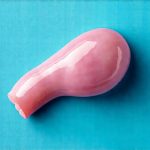Many individuals experience bladder sensitivity, often manifesting as urgency, frequency, or discomfort. While numerous factors can contribute to these issues – including diet, hydration levels, stress, and underlying medical conditions – the gut-bladder axis is increasingly recognized as a significant player. This connection highlights how the health of our digestive system profoundly impacts bladder function. Probiotics, live microorganisms that confer health benefits when consumed, offer a promising avenue for supporting both gut and potentially bladder wellbeing. However, not all probiotics are created equal, and certain foods commonly associated with probiotic benefits can actually exacerbate bladder symptoms in sensitive individuals. This article explores how to navigate the world of probiotics with bladder harmony in mind, focusing on recipes and ingredients that minimize potential irritation while maximizing beneficial support.
Understanding the gut-bladder axis is crucial. The intricate relationship between these two systems involves shared neurological pathways, immune system interactions, and microbial influence. A disrupted gut microbiome – an imbalance of bacteria within our digestive tract – can lead to inflammation and increased intestinal permeability (often called “leaky gut”). This allows substances to enter the bloodstream that can trigger systemic inflammatory responses, potentially impacting bladder function and contributing to symptoms. Probiotics aim to restore a healthier balance in the gut, but it’s essential to choose strains and dietary sources carefully, particularly if you’re prone to bladder sensitivity. Certain fermented foods, while probiotic-rich, contain high histamine levels or other compounds that can irritate the bladder. This article will provide practical recipes and guidelines for incorporating probiotics into your diet in a way that supports both gut health and minimizes potential bladder distress.
Probiotic-Rich Foods & Bladder Considerations
The cornerstone of any bladder-friendly probiotic approach is mindful food selection. While fermented foods like sauerkraut, kimchi, and kombucha are often touted as probiotic powerhouses, they can be problematic for some with sensitive bladders due to their histamine content or fermentation byproducts. Histamine, a compound involved in immune responses, can trigger urgency and discomfort in susceptible individuals. Similarly, the acidity of certain fermented vegetables might also cause irritation. It’s vital to listen to your body and identify any personal triggers. Yogurt is often considered a safe bet, but even here, caution is advised. Many commercial yogurts are loaded with sugar, artificial sweeteners, and additives that can contribute to bladder symptoms. Opting for plain, unsweetened yogurt made from goat or sheep’s milk (easier to digest for some) is preferable. Learning about foods that irritate a sensitive bladder can help you make informed choices.
Beyond traditional fermented foods, there are alternative ways to incorporate probiotics into your diet without risking irritation. Probiotic supplements offer a more controlled approach, allowing you to choose specific strains known to be well-tolerated. Kefir, made from fermented milk, often contains a wider range of probiotic strains than yogurt and may be easier to digest for some individuals. However, the same caveats regarding added sugars apply – choose plain kefir whenever possible. Incorporating foods that feed your existing gut bacteria (prebiotics) is also incredibly important. These include bananas, oats, asparagus, garlic, and onions – though, again, individual sensitivities should guide choices. For a deeper understanding of supporting gut health, explore natural prebiotic meals that avoid bladder irritants.
Finally, homemade fermentation can be a fantastic option. By controlling the ingredients and process, you can minimize histamine production and tailor ferments to your specific needs. For example, water kefir (fermented sugar water) is generally lower in histamine than milk kefir or vegetable ferments. Remember that introducing probiotics slowly allows your body to adjust, reducing the risk of digestive upset or bladder flare-ups. Consider how daily digestive habits support bladder ease alongside probiotic intake.
Recipes for Bladder Harmony & Gut Support
These recipes prioritize gentle probiotic sources and minimize potential irritants. They are designed to be starting points – feel free to adapt them based on your individual tolerances and preferences.
Homemade Water Kefir
Water kefir is a refreshing, lightly effervescent beverage that’s easy to make at home. It’s generally well-tolerated by those with bladder sensitivities, as it doesn’t contain dairy or high levels of histamine typically found in other ferments.
- You will need water kefir grains (available online or from health food stores), filtered water, and organic cane sugar or coconut sugar.
- Dissolve ¼ cup of sugar in 4 cups of filtered water.
- Add 2-3 tablespoons of water kefir grains to the sweetened water in a clean glass jar.
- Cover loosely with a breathable cloth secured with a rubber band and let ferment for 24-72 hours at room temperature, checking daily for desired level of fizz. The warmer the environment, the faster it ferments.
- Strain out the grains (save them for your next batch!) and enjoy your water kefir plain or flavored with a slice of cucumber or a few berries (avoid citrus!).
Gentle Yogurt Parfait
This parfait uses goat’s milk yogurt which is often easier to digest than cow’s milk yogurt, reducing potential digestive upset that could impact bladder function. It avoids added sugars and common irritants.
- Start with ½ cup of plain, unsweetened goat’s milk yogurt (or sheep’s milk).
- Layer in a small handful of blueberries (antioxidant-rich and generally well-tolerated) and ¼ cup of gluten-free oats that have been soaked overnight to improve digestibility.
- Sprinkle with a tiny amount of chia seeds for added fiber and omega-3 fatty acids.
- You can add a drizzle of maple syrup if desired, but use sparingly. Prioritize minimal sweetness.
Soothing Probiotic Smoothie
This smoothie incorporates probiotics from kefir alongside bladder-friendly ingredients. It’s designed to be gentle on the digestive system and minimize irritation.
- Blend ½ cup plain kefir (dairy or non-dairy), ½ frozen banana, ¼ cup spinach, and ½ cup filtered water.
- Add a teaspoon of flaxseed meal for fiber and omega-3s.
- A small amount of ginger can be added to aid digestion – but use cautiously as some individuals are sensitive to it.
- Adjust the consistency with more water if needed.
It’s important to remember that individual tolerance varies significantly. What works well for one person may not work for another. Keeping a food diary and tracking your bladder symptoms can help you identify specific triggers and tailor your diet accordingly. If you have any underlying medical conditions or concerns, please consult with a healthcare professional before making significant changes to your diet or supplement regimen. This article is intended for informational purposes only and should not be considered medical advice. To further support overall wellbeing, consider probiotic use in bladder and prostate support as part of a holistic approach.





















